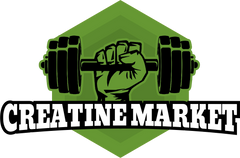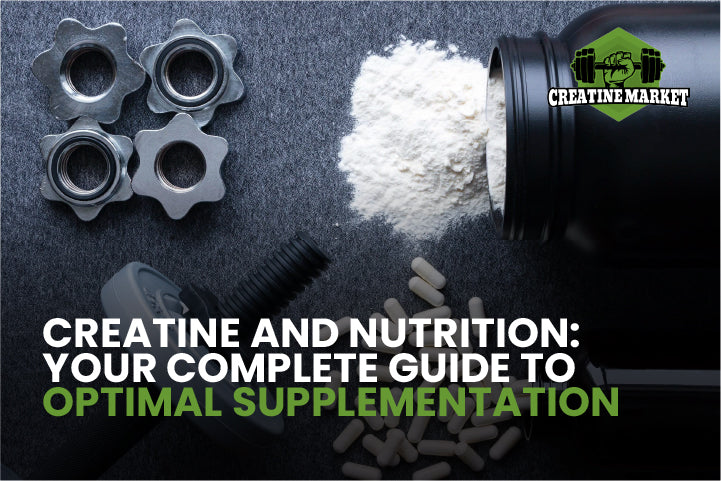Creatine is one of the most well-researched supplements in sports nutrition, but many people don't realize it occurs naturally in various foods. This comprehensive guide explores the best dietary sources of creatine, their benefits, and how to optimize your intake through whole foods.
Understanding Creatine: A Vital Energy Source
Creatine plays a crucial role in energy production within our muscles and brain. This naturally occurring compound helps regenerate ATP (adenosine triphosphate), the primary energy currency of our cells. While our bodies produce some creatine in the liver, kidneys, and pancreas, we obtain a significant portion through our diet.
The Science Behind Creatine
When you consume creatine-rich foods, your body stores this compound primarily in skeletal muscle tissue. Here, it forms creatine phosphate, which helps rapidly replenish ATP during high-intensity, short-duration activities like sprinting or weightlifting. This process enables better performance and faster recovery during exercise.
Top Natural Food Sources of Creatine
You might be surprised at the amount of foods that actually have a good amount of creatine in them, naturally. Let's explore the foods that contain the highest amounts of natural creatine, listed in order of concentration.
Red Meat: The Premium Source
Beef stands as one of the richest natural sources of creatine, containing approximately 5 grams per kilogram of raw meat. Grass-fed beef typically contains higher concentrations compared to grain-fed alternatives. The creatine content varies depending on the cut, with lean muscle meat providing the highest amounts.
Wild Game: An Overlooked Powerhouse
Wild game meats like venison, elk, and bison often contain more creatine than domesticated animals. This higher concentration stems from these animals' active lifestyles and natural diets. Wild game typically provides 4.5 to 5.2 grams of creatine per kilogram of meat.
Fish: Swimming in Creatine
Several fish species offer significant amounts of creatine:
Herring leads the pack with approximately 6.5 to 10 grams of creatine per kilogram, making it one of the richest natural sources available. Salmon follows with 4.5 grams per kilogram, while cod provides about 3 grams per kilogram. The creatine content tends to be higher in wild-caught fish compared to farm-raised varieties.
Pork: A Substantial Source
Pork contains moderate amounts of creatine, with roughly 5 grams per kilogram of raw meat. The concentration varies between different cuts, with lean muscle meat offering the highest levels.
Creatine and Proper Food Timing
Nutrient timing plays a crucial role in creatine absorption. Pairing creatine supplementation with carbohydrate-rich meals enhances uptake through insulin response optimization. Strategic meal planning around training ensures maximum benefits from both dietary nutrients and creatine supplementation. Research indicates a 60% improvement in creatine uptake when consumed with high-glycemic carbohydrates.
Optimizing Creatine Intake Through Diet
Wondering how to optimize your creatine intake through a diet that includes creatine-rich foods? While we can supplement with creatine powder, nothing beats eating whole foods with the nutrition you’re looking for already in them.
Cooking Considerations
Heat can affect creatine content in foods. While cooking is necessary for food safety, certain methods better preserve creatine:
Shorter cooking times and lower temperatures help retain more creatine content. Avoid excessive cooking or reheating, as this can degrade creatine levels. Consider rare to medium cooking temperatures for meats when food safety permits.
Combining Foods for Maximum Benefit
While animal products contain the highest amounts of creatine, combining different food sources can optimize your intake:
Creating meals that include both red meat and fish can provide complementary amino acids and creatine levels. Adding creatine-rich foods to post-workout meals may enhance recovery and muscle protein synthesis.
Special Considerations for Different Dietary Preferences
Vegetarian and Vegan Options
Plant-based diets naturally contain minimal creatine, as it's primarily found in animal products. However, vegetarians and vegans can consider:
Cranberries and wild mushrooms contain trace amounts of creatine, though significantly less than animal sources. The body can produce creatine from amino acids glycine, arginine, and methionine, found in plant proteins. Supplementation might be worth considering for plant-based athletes.
Athletes and Active Individuals
Athletes require more creatine than sedentary individuals, making dietary sources particularly important:
Active individuals might benefit from consuming 2-3 servings of creatine-rich foods daily. Timing these meals around workouts can potentially enhance performance and recovery.
Health Benefits Beyond Exercise
Cognitive Function
Research suggests creatine supports brain health and cognitive function:
Studies indicate that higher creatine intake may improve memory and mental performance. Older adults might particularly benefit from maintaining adequate creatine levels through diet.
Energy Metabolism
Proper creatine levels support overall energy production throughout the body:
Daily activities benefit from optimal creatine stores, not just exercise performance. Maintaining adequate dietary creatine intake can help support general vitality and energy levels.
Creating a Creatine-Rich Meal Plan
Sample Daily Menu
Here's an example of how to incorporate creatine-rich foods into your daily diet:
Breakfast: Salmon and eggs Lunch: Lean beef stir-fry with vegetables Dinner:Grilled herring or cod with quinoa and greens
Practical Tips and Recommendations
Shopping and Storage
To maximize the creatine content in your foods:
Choose fresh, high-quality meat and fish from reliable sources. Store proteins properly to maintain their nutritional value. Consider buying in bulk and freezing to ensure a consistent supply of creatine-rich foods.
Conclusion
While supplements remain popular, obtaining creatine through natural food sources offers additional nutrients and benefits. Focus on incorporating a variety of creatine-rich foods into your diet, particularly if you're active or athletic.
Remember that cooking methods and food quality can impact creatine content, so choose fresh, high-quality sources and prepare them appropriately.




